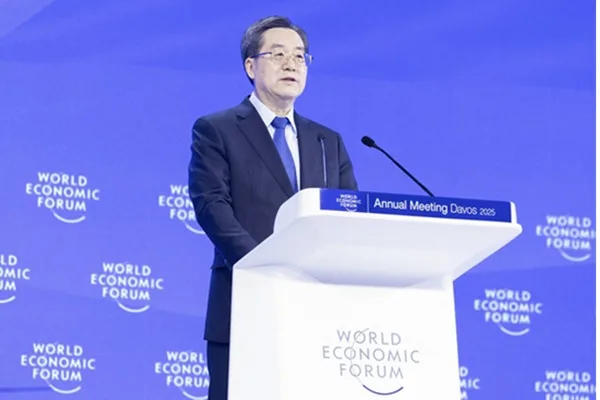Chinese Vice Premier Ding Xuexiang’s Sings Ode to Globalization at Davos 2025
State of Chinese Economy
On 21 January 2025, Chinese Vice Premier DING Xuexiang delivered his remarks at the World Economic Forum 2025 (#WEF2025) in Davos. First of all, he described the state of the Chinese economy which grew at a respectable 5% in 2023. He then revealed that the Chinese government plans to keep up reforms at the policy level and reinforce stimulus, if necessary, in order to turn up the knob on macroeconomic indicators.
In the face of global challenges, Chinese economy is undergoing a challenging paradigm shift from ‘low-cost manufacturing to high-quality development’ which a focus on innovation and higher value products.
As opposed to some other large economies, China is committed to the fight against #ClimateChange. China is already the largest manufacturer of #PV and #EV in the world as part of the global drive towards #NetZero. It s worth reminding that China operates some of the the largest solar farms in the world and boasts an adoption rate for EV that is among the highest of all countries.
He recalled that President XI Jinping attended WEF eight years ago to introduce the concept of ‘common destiny of humanity.’ Subsequently, China proposed the #GDI, #GSI and #GCI to elaborate on its vision of a new world order. Staying on course, he warned against protectionism and put forward a number of propositions.
Promote an Open and Inclusive Global Economy
Globalization has brought about unprecedented progress and integrated the world economy in ways that nobody could imagine. Globalization leverages a country own advantages in order to provide goods and services to the world at the best competitive price. Tariffs and other non-tariff barriers (#NTB) can only distort the global market and is not sustainable.
Thanks to globalization, the volume of global trade has grown cumulatively by an average of 5.8% annually since 1995 to reach USD 30.4 trillion in 2023 based on statistics from the World Trade Organization (WTO). Over the same period, the share of middle- and low-income countries in global export has doubled from 16% to 32%.
Trade wars has no winners and the world economy should not be viewed purely as a zero-sum game. Instead of protectionism, we must work towards a more inclusive development where wealth is more equitably distributed to the #GlobalSouth.
Uphold Multilateralism in the Multipolar World
China believes that international issues should be resolved via negotiations. #GlobalGovernance must take into account the voice of all countries so that multilateralism is not just a mere motto.
In short, China upholds a vision of a more equitable Global Governance whereby we have extensive consultation, equal rights and same rules for all countries, with joint responsibilities and shared benefits.
The so-called ‘American Exceptionalism’ can no longer prevail in the emerging new world order as states seek to have greater say in international affairs and a more equitable share of the global economic pie.
Foster New Engines of Growth for the Global Economy
However, the North-South divide is still quite wide. In particular, access to new technologies such as AI seems to be widening as some countries adopt a protectionist approach.
China stands ready to work with all countries to promote AI, Intelligent Transport and Smart Energy initiatives. Major global challenges need seamless solidarity and closer cooperation among countries.
We must at all cost avoid that the new cold war veers into hot war with unimaginable dire consequences for the world. By managing geopolitical tensions, the global economy can follow a more stable and predictable trajectory.
Intensify the Fight Against Climate Change
China believes the international community should continue to work together too accelerate the #EnergyTransition in a just and orderly manner. One must be consistent and coherent in our actions in the fight against #ClimateChange.
China is also promoting the #CircularEconomy to reduce its carbon footprint. At present, some Chinese companies can produce one T-shirt from the polyester yarn recuperated from eight plastic bottles. China estimates it can upcycle up to 30 billion plastic bottles a year by converting them into green textile products.
China remains an adherent of the #ParisAgreement and will pursue the goals of the UNFCCC. As such, China will deploy tireless efforts to reduce carbon emissions by fostering sustainable growth.

